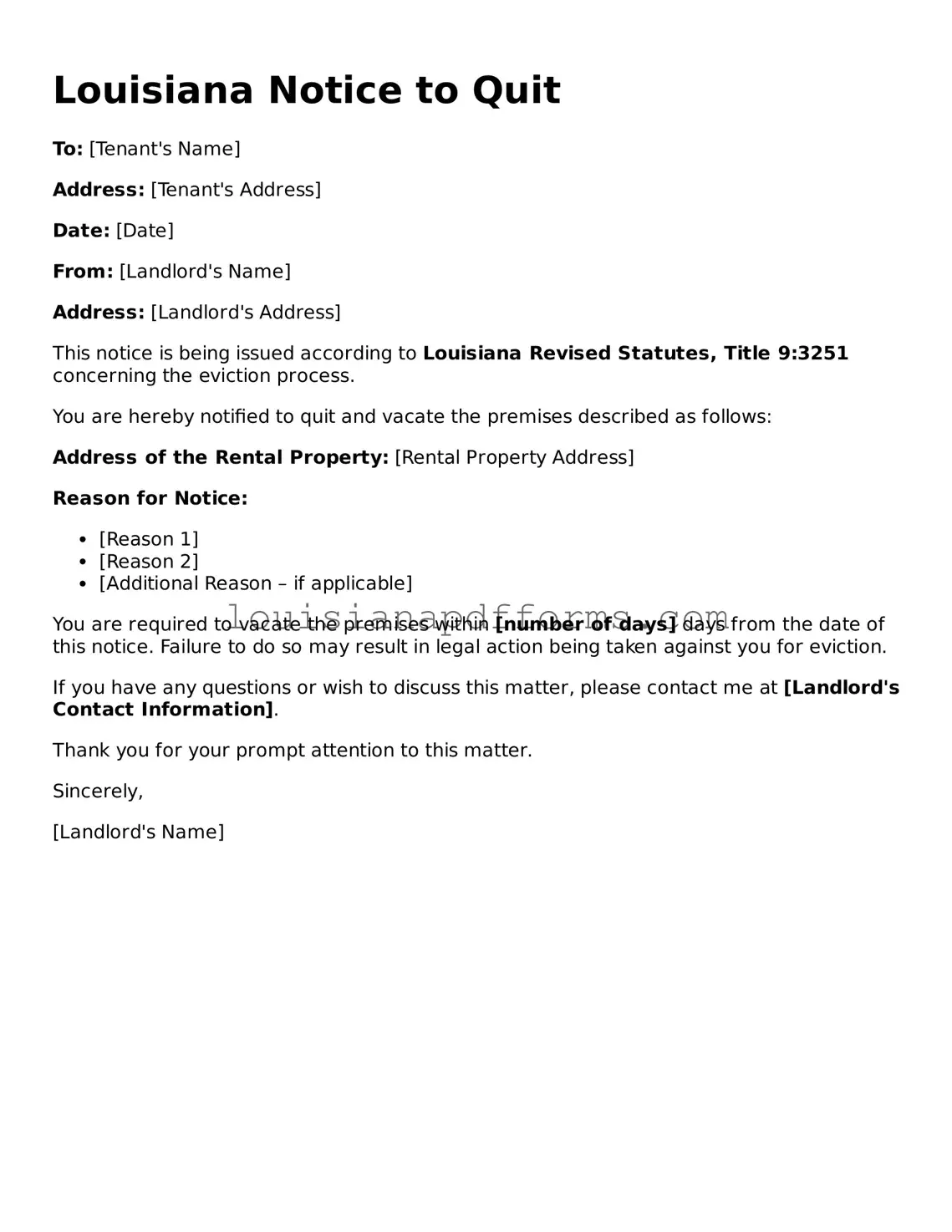Louisiana Notice to Quit Form
The Louisiana Notice to Quit form is a legal document that a landlord uses to inform a tenant that they must vacate the rental property. This form outlines the reasons for the eviction and provides a timeline for the tenant to leave. Understanding this form is essential for both landlords and tenants to ensure a smooth transition and compliance with state laws.
Access My Document Now

Louisiana Notice to Quit Form
Access My Document Now

Access My Document Now
or
Free Notice to Quit
You’re halfway through — finish the form
Edit, save, and download your completed Notice to Quit online.